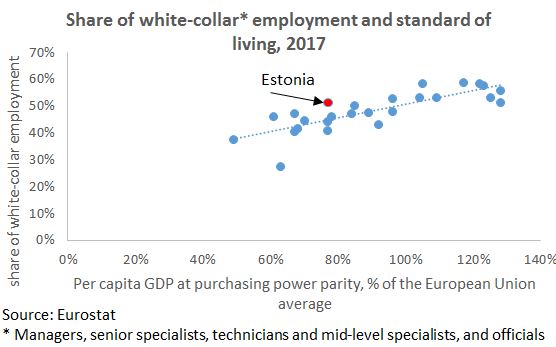Analytics, Banks, Employment, Inflation, Labour-market, Statistics, Wages
International Internet Magazine. Baltic States news & analytics
Wednesday, 24.04.2024, 15:56
The labour market remains favourable for employees – Estonian cbank
 Print version
Print versionSeveral other sources of data agree that the labour market remains
favourable for employees. Data from the Tax and Customs Board show the number
of waged employees rose by more than 2% in the first half of 2018, while the
number of vacancies remains high, and the rise in the number of people
registered as unemployed can be explained by the Work Ability Reform.
Labour shortages are restricting the expansion of production at an increasing share of employers and optimism about further growth in employment is showing signs of fading. The share of service and industrial companies that consider labour shortages to be the main factor impeding increases in production increased again in the second quarter of this year. The share of such companies did not increase in construction but remained at the same high level as last year.
Companies have become more pessimistic about future
increases in employment, with expectations growing only in the industrial
sector. Statistics for vacancies showed a slight fall in the vacancy rate in the
first quarter of the year. A smaller number of unfilled jobs indicates that
companies are finding it hard to keep offering wages at the high levels they
have climbed to.
The share of the employed working in jobs that require higher
qualifications has increased. A notable contribution to this has been made
by the increase in the number of professionals working in information and
communications and in business and administration. The fastest growth in the
past year jobs advertised at Töötukassa has been in those that require higher
qualifications. Data from European Union countries show a positive connection
between the share of white-collar employment and the standard of living of a
country.









 «The Baltic Course» Is Sold and Stays in Business!
«The Baltic Course» Is Sold and Stays in Business!

